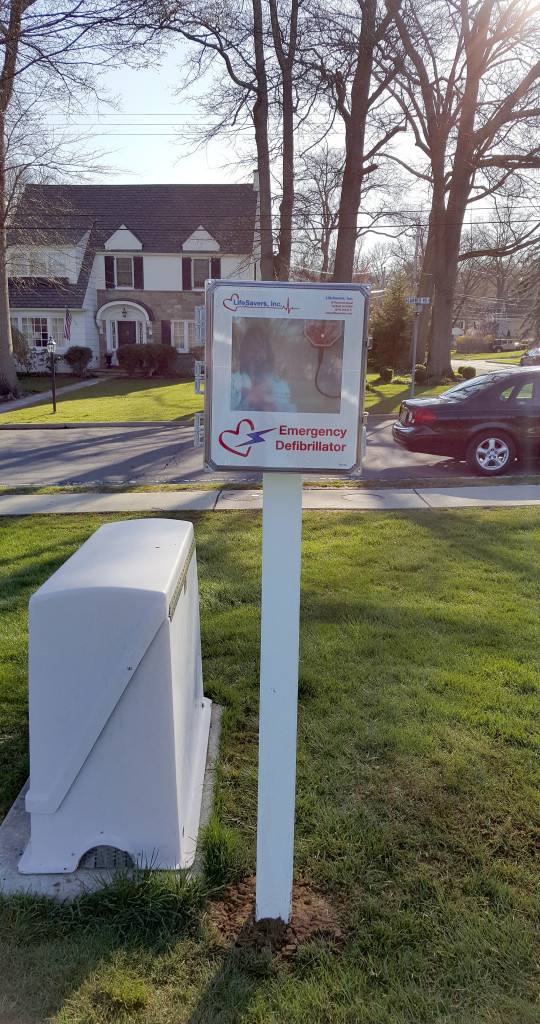The City of Summit is announcing the inclusion of automatic external defibrillator (AED) equipment on all municipal sports fields as part of its emergency action plan to protect the safety of athletes, spectators, coaches and officials in the event of a medical emergency. An AED is a lightweight, portable, battery operated, computerized device that is used to restore a regular heartbeat after sudden cardiac arrest caused by undiagnosed heart problems. AEDs are designed to allow non-medical personnel to save lives.
During a cardiac emergency, two pads connected to the AED are placed on the patient’s chest. A computer inside the AED analyzes the patient’s heart rhythm and determines if an electric shock to the heart is required to save the victim. If so, the AED uses voice instructions to guide the user through the defibrillation process.
As long as an AED is turned on, it is designed to be next to foolproof. It will not prompt the operator to go to the next step until the previous step has been completed and provides a logical, well-defined, and well-documented sequence of directions. Further, the AED will not allow a shock to be administered unless the person is actually in cardiac arrest.
While it is not mandated by state law for recreation departments to have outdoor AED equipment available on athletic fields, the City of Summit chose to follow recent schools legislation and require AEDs at all athletic games and practices.
In early 2016, the City of Summit Department of Community Programs received approval for the use of Field Restoration funds to purchase 13 AEDs that will be strategically placed in locations at Investors Bank Field, Glenside Field, Upper Tatlock Field, Memorial Field, Village Green, Summit High School, Summit Middle School and all five elementary schools. The placement of each AED, designed with a red flag and highly visible markings, will allow for no greater than a 90-second response time to a potential victim on each field. All recreation and youth sports coaches will receive training on how to operate the equipment. Most CPR classes offer additional training in the use of an AED. If someone is already trained in CPR, training on the use of an AED takes even less time. In the state of New Jersey, Good Samaritan legislation protects all lay rescuers from lawsuits.
The City Department of Community Programs will be performing monthly visual inspections to help keep AEDs in proper working order. Citizens are asked to report any equipment that appears inoperable or damaged, or is sounding an alarm to www.cityofsummit.org/reportaconcern or call the Department of Community Programs at 908-277-2932.
For more information on the Department of Community Programs and its emergency action plan for youth sports safety, visit http://summitcommunityprograms.com.

- Home
- Publications
- Berkeley Heights Community News
- Clark Monthly
- The Chathams
- Cranford Monthly
- East Hanover View
- Elmora Hills
- Fanwood Post
- Florham Park Press
- Garwood Times
- Green Brook Gazette
- Hanover Township Press
- Kenilworth Business Life
- Life in Linden
- Livingston Monthly
- Long Hill Leader
- Madison Monthly
- Millburn Short Hills Monthly
- Mountainside View
- Morristown Monthly
- Morris Township Times
- New Providence News
- Our Town Rahway
- Peterstown NJ
- Life in Roseland
- Roselle Park Monthly
- Scotch Plains Monthly
- Spirit of Union
- Summit Times
- Pride of North Plainfield
- Warren Monthly
- Watchung Post
- Westfield Monthly
- Articles
- Advertising Information
- About
- Submit News
- Photos

